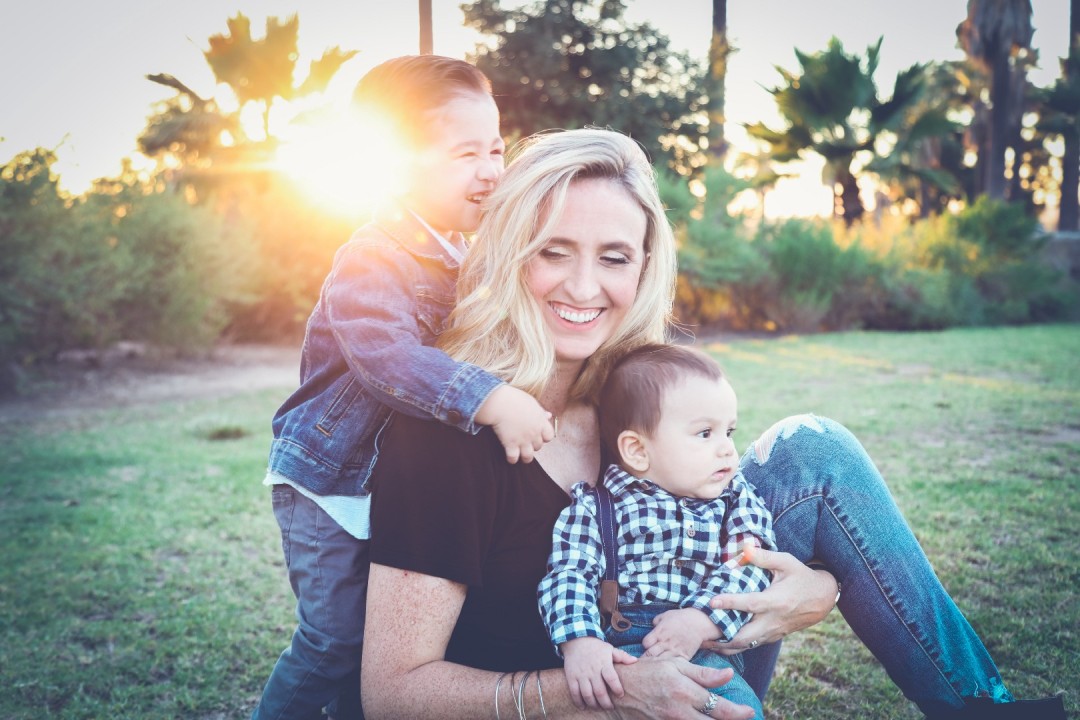Unveiling the Rewards of Adoption and Foster Parenting
Discover the profound joy of adoption and foster parenting by forming unbreakable emotional bonds, providing a stable family environment, fostering personal growth, creating lasting memories, and empowering a child’s future. Embrace the transformative power of love and stability as you nurture empathy, celebrate milestones, and cultivate a sense of belonging. Each moment spent with a child brings opportunities for growth, resilience, and joy. Your journey as a foster parent or adoptive caregiver is filled with rewards that go beyond measure, offering a chance to make a lasting impact on a child’s life and shape a brighter future.
Key Takeaways
- Forming unbreakable bonds with children through daily interactions and shared experiences.
- Providing a stable and nurturing environment for emotional growth and development.
- Creating lasting memories and a sense of identity through meaningful traditions.
- Empowering children’s futures by fostering resilience and essential life skills.
- Cultivating compassion, empathy, and unconditional love to make a lasting impact.
Emotional Bonds Forming Naturally

Forming emotional bonds with the children in your care happens naturally through daily interactions and shared experiences, creating a strong foundation of love and trust. These natural connections lead to unbreakable bonds that can last a lifetime.
As you invest time and effort into building these emotional attachments, you’ll find yourself becoming deeply connected to the children, forming family-like ties that go beyond just a caregiver relationship.
Through moments of laughter, tears, triumphs, and challenges, you’ll witness the beauty of these relationships blossoming into something truly special. The children will begin to see you not only as a caregiver but as a source of comfort, stability, and unwavering support.
Your role in their lives will become more than just providing for their physical needs; you’ll be a pillar of strength and a beacon of love in their world.
Embrace these natural bonds forming between you and the children in your care, for they’re the foundation upon which your journey in adoption and foster parenting will thrive.
Creating a Stable Family Environment

You can play an essential role in promoting family bonds by offering a stable and nurturing environment.
By providing emotional support during challenging times, you can help children feel safe and secure.
This foundation of stability is vital for fostering strong and lasting attachments within the family unit.
Promoting Family Bonds
Creating a stable and nurturing family environment is essential for promoting strong bonds among adopted or foster children and their caregivers. Family traditions play an important role in fostering connection and a sense of belonging. By incorporating traditions from both the child’s background and the new family’s culture, you create a unique tapestry of shared experiences that strengthen the familial bond.
Through shared experiences like family outings, game nights, or holiday celebrations, you aren’t only building memories but also establishing a foundation of trust and security. These shared moments help in creating a sense of unity and togetherness within the family unit.
Encouraging open communication during these times can further deepen the bonds between you and the children in your care.
Providing Emotional Support
To provide emotional support and create a stable family environment for adopted or foster children, it’s important to establish a foundation of trust and security through shared experiences and open communication. Building trust is key in nurturing a sense of safety and belonging.
Encouraging resilience in children can be achieved by acknowledging their feelings and experiences, validating their emotions, and providing comfort during challenging times. Offering guidance and reassurance helps in fostering a secure environment where children feel supported and understood.
Fostering Secure Attachments
Establishing a nurturing and stable family environment is essential for fostering secure attachments with adopted or foster children. Attachment development and caregiver relationships play an important role in building trust and emotional connections with the children under your care. By providing a safe and loving home environment, you create the foundation for these children to form healthy bonds and feel secure in their relationships.
Building secure attachments requires consistent care, empathy, and understanding. Showing affection, being available to listen, and offering reassurance can help the children feel valued and supported. As a foster or adoptive parent, your role in fostering secure attachments is crucial for the children’s emotional well-being and development.
It is important to recognize that building secure attachments takes time and patience. Each child may have unique needs and may require different approaches to trust building. By being attentive, responsive, and compassionate in your caregiving, you can help the children feel safe, loved, and connected in their new family environment.
Personal Growth and Self-Discovery

Starting on the journey of adoption or foster parenting can lead to profound personal growth and self-discovery as you navigate the challenges and joys of caring for a child in need. Engaging in this role can spark inner growth and self-reflection, allowing you to develop a deeper sense of personal development and self-awareness.
Through the process of caring for a child who may have experienced trauma or loss, you may find yourself facing your own vulnerabilities and strengths. This journey can serve as a mirror, reflecting back aspects of yourself that you may not have fully explored before.
As you navigate the ups and downs of parenting, you may discover new strengths within yourself that you never knew existed. This journey of personal growth can be both challenging and rewarding, helping you to cultivate a greater sense of empathy, resilience, and understanding.
Embracing this path of self-discovery can lead to not only positively impacting the life of a child but also enriching your own life in ways you never imagined.
Building Lasting Memories Together
Creating lasting memories together with a child in your care can be a heartwarming and meaningful experience that strengthens the bond between you. Shared experiences like cooking together, exploring nature, or even just reading bedtime stories can create a deep connection and sense of belonging for both you and the child. These moments of togetherness form the foundation of a strong and enduring relationship.
Introducing meaningful traditions into your daily life can further enhance the memories you build together. Whether it’s a weekly movie night, a special holiday ritual, or a yearly camping trip, these traditions create a sense of stability and security for the child while also fostering a sense of belonging and family unity.
Through shared experiences and meaningful traditions, you aren’t only creating lasting memories that the child will cherish for a lifetime but also providing them with a sense of identity, love, and security that will shape their future relationships and outlook on life.
Empowering a Child’s Future

Helping a child build a strong foundation for their future success and well-being is a rewarding aspect of adoption and foster parenting. Educational empowerment plays a vital role in shaping a child’s future success. By providing access to quality education, you’re offering them the tools they need to thrive academically and pursue their dreams.
Encouraging personal development is another key component in empowering a child’s future. By fostering a supportive and nurturing environment, you can help them build confidence, self-esteem, and essential life skills that will serve them well into adulthood.
Furthermore, fostering resilience in children is essential for overcoming challenges and setbacks they may encounter in life. By teaching them how to adapt to change, manage stress, and bounce back from adversity, you’re equipping them with the strength and determination needed to navigate life’s obstacles.
Your role as an adoptive or foster parent in empowering a child’s future is invaluable, as you have the opportunity to make a lasting impact on their lives and set them on a path towards a bright and successful future.
Cultivating Empathy and Compassion
To nurture empathy and compassion in a child, you can demonstrate kindness and understanding towards others in your everyday interactions, fostering a sense of empathy that encourages them to connect with and care for those around them. Empathy development starts with simple acts of kindness and promoting understanding of others’ feelings and perspectives.
Encourage your child to contemplate how others may be feeling and to show compassion in their actions. By cultivating kindness and promoting understanding, you’re laying the foundation for your child to become a caring and empathetic individual.
Engage your child in conversations about emotions, actively listen to their concerns, and validate their feelings to help them develop empathy. Encourage them to participate in activities that promote compassion, such as volunteering or helping others in need.
Model empathetic behavior yourself, showing them how to respond with care and consideration towards others. By fostering compassion and empathy in your child, you’re helping them build strong, meaningful relationships and contribute positively to the world around them.
Nurturing Unconditional Love

You know the power of love in nurturing relationships with your children.
By building trust through love, you create a safe space for them to grow and thrive.
As you form lasting bonds and foster emotional connections, you provide the foundation for unconditional love to blossom.
Building Trust Through Love
Gently nurturing unconditional love is vital to building trust with adopted or foster children, creating a foundation for lasting bonds and emotional security. Trust-building activities play an essential role in fostering resilience and promoting emotional healing in children who’ve experienced trauma or instability.
By understanding and speaking their love languages, whether through acts of service, quality time, words of affirmation, physical touch, or gifts, you can show your child that they’re valued and cared for unconditionally.
Engaging in trust-building exercises such as collaborative projects, sharing feelings openly, and setting consistent boundaries helps establish a sense of safety and predictability. Encourage open communication, validate their emotions, and be a consistent presence in their lives to reinforce feelings of security and trust.
Through patience, empathy, and unwavering support, you can gradually build a strong foundation of trust that allows your child to heal emotionally and form healthy attachments that last a lifetime.
Forming Lasting Bonds
Nurturing unconditional love lays the groundwork of lasting bonds with adopted or foster children, establishing a secure foundation for emotional connections to flourish.
Parent-child relationships are built on the cornerstone of trust, a fundamental element that grows with time, care, and understanding. As you commence on this journey of forming lasting bonds, remember that trust isn’t something that happens overnight; it’s a gradual process that requires patience and consistency.
By showing unwavering love and support, you pave the way for your child to feel secure and valued, creating a safe space where they can express themselves freely.
Developing trust involves active listening, empathy, and being present in the moment. Your commitment to understanding your child’s needs and emotions fosters a sense of security and belonging.
Through shared experiences, laughter, and even tears, you strengthen the foundation of your relationship, nurturing a bond that transcends words.
Embrace each moment as an opportunity to connect on a deeper level, sowing the seeds of unconditional love that will blossom into a beautiful, lasting bond.
Fostering Emotional Connections
Building strong emotional connections with adopted or foster children starts with cultivating a foundation of trust and unconditional love, laying the groundwork for meaningful and lasting relationships. Trust building activities and emotional connection exercises are vital in nurturing these bonds.
Engage in activities that promote open communication, such as sharing feelings through art or writing, to foster a safe space for expression. Additionally, practicing active listening and validating their emotions can help strengthen the attachment between you and the child.
Attachment building strategies play an essential role in creating a sense of belonging and security within the family unit. Encourage routines and traditions that promote togetherness, like family game nights or cooking meals together. These family bonding techniques help create shared experiences and memories that deepen the emotional connection between you and the child.
Celebrating Milestones and Achievements

Celebrate the significant milestones and achievements of your adopted or foster child with joy and admiration. Milestone celebrations are essential in recognizing progress and accomplishments that your child has made along their unique journey.
Whether it’s their first day at a new school, learning to ride a bike, or excelling in a particular hobby, each achievement is a proof of their resilience and growth. Take the time to genuinely acknowledge and celebrate these milestones with your child.
Offer words of encouragement, hugs, and maybe even a small token of appreciation to commemorate the occasion. By doing so, you aren’t only reinforcing their sense of self-worth but also fostering a deeper bond between you and your child.
Fostering a Sense of Belonging
As your child reaches important milestones and achievements, it’s natural to reflect on how these experiences contribute to fostering a sense of belonging within your family dynamic.
Building a strong sense of belonging and identity is vital for every child, especially those who’ve experienced the uncertainties of adoption or foster care. Through supportive relationships and a nurturing environment, you have the power to create a space where your child feels accepted, valued, and truly a part of the family.
Belonging and identity go hand in hand, shaping how your child sees themselves within the family unit and the world at large. By providing love, stability, and understanding, you’re laying the foundation for your child to develop a strong sense of self and belonging.
Celebrating their achievements and milestones further reinforces this sense of belonging, showing them that they’re an integral part of the family fabric.
Frequently Asked Questions
Can Single Individuals Adopt or Foster Children?
Yes, single individuals can adopt or foster children. Legal requirements vary, but resources are available to guide you. Consider financial implications and seek emotional support. Remember, your decision can positively impact a child’s life.
How Do You Navigate Cultural Differences With an Adopted Child?
When managing cultural differences with an adopted child, it’s essential to prioritize open communication and understanding. Implement parenting strategies that emphasize cultural sensitivity, promoting trust and connection. By embracing diversity, you can create a supportive and inclusive environment for your child.
What Support Is Available for Foster Parents Dealing With Trauma?
When dealing with trauma as a foster parent, you can access valuable resources like trauma therapy and support groups. These avenues provide essential guidance and understanding to help both you and the child navigate through challenging times with support.
Are There Age Restrictions for Adopting or Fostering Children?
Yes, there are age requirements for adopting or fostering children. Typically, you must be over 21 years old to become a foster parent. Single parents are also eligible to adopt or foster children with the right support.
How Can I Help an Adopted Child Cope With Feelings of Loss?
You can help an adopted child cope with feelings of loss by seeking grief counseling and teaching coping strategies. Engage in family therapy and maintain open communication to provide a supportive environment for the child’s emotional well-being.
Conclusion
To summarize, by opening your heart and home to adoption or foster parenting, you’re beginning a journey filled with love, growth, and connection.
The rewards of nurturing a child in need are immeasurable, as you create a stable and supportive environment that empowers them to thrive.
Through empathy, compassion, and unconditional love, you’re shaping a brighter future for both the child and yourself.
Embrace the journey, and cherish the moments that truly matter.

Hey there! 👋 I’m a proud mom and passionate writer, sharing my parenting journey. 📝 Join me as I navigate the ups and downs of motherhood, offering tips, advice, and a sprinkle of humor along the way. 🌟







